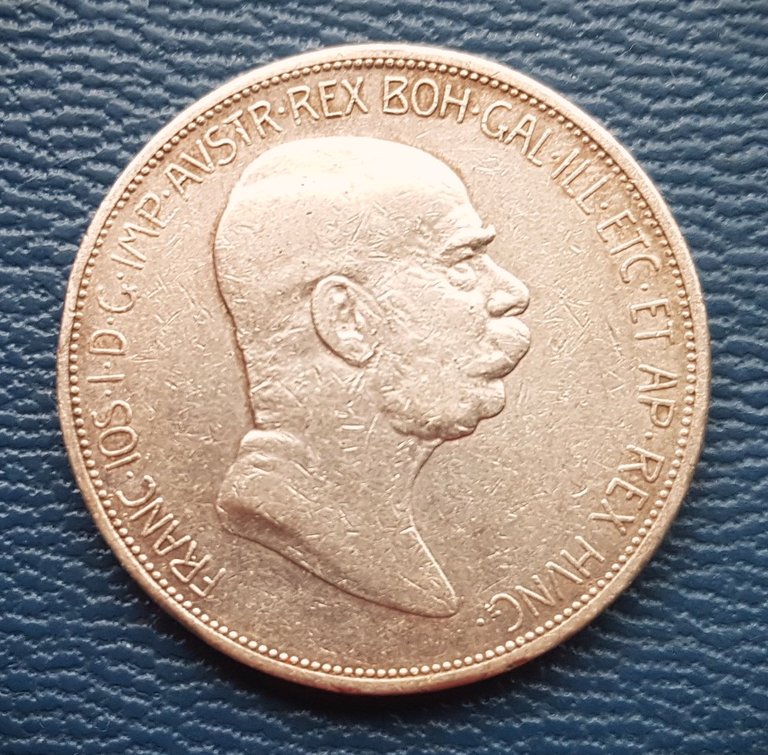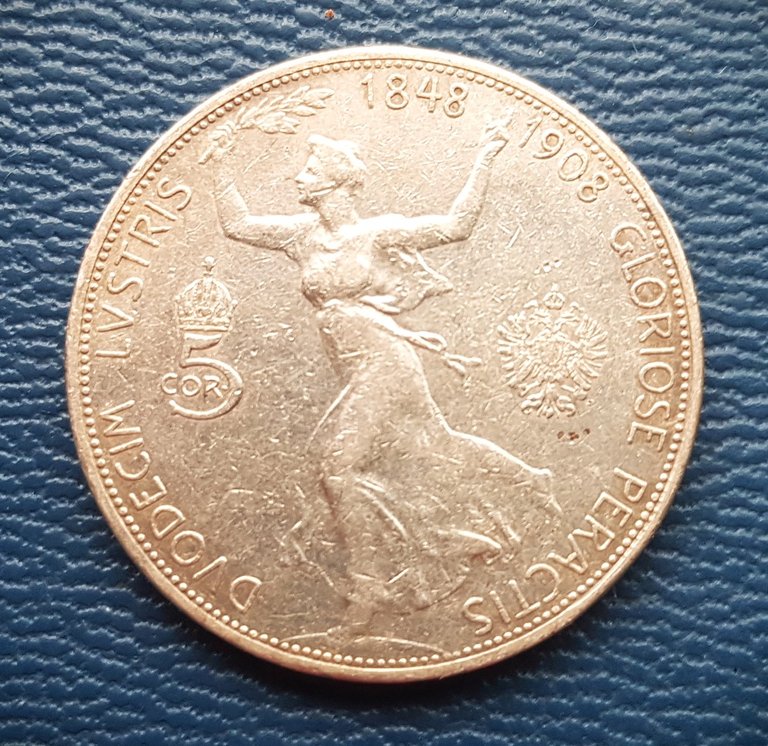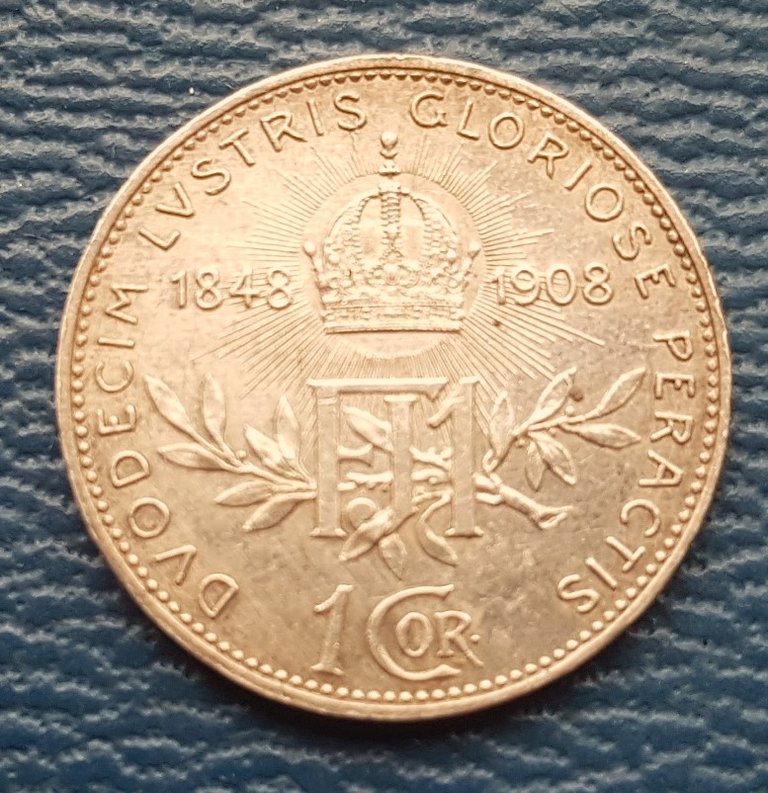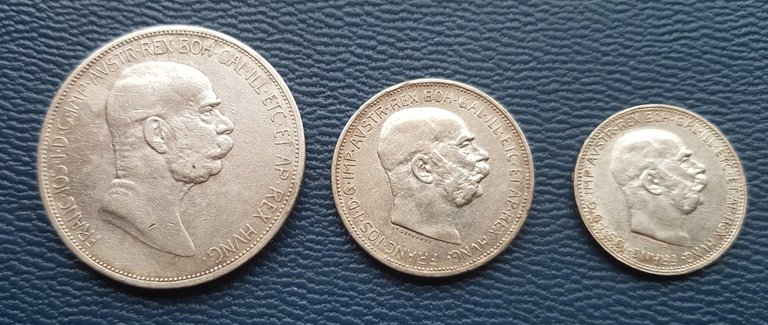
Franz Joseph I lived from 1830 to 1916. He was Emperor of Austria from 1848 to 1916. In 1908, he celebrated 60 years on the throne. Commemorative coins were minted on this occasion. These coins I want to present to you today.

5 crowns, 1908, 60th Anniversary of the Reign, diameter 36 mm, weight 24 g of silver, purity 900/1000.
In my last article I wrote that Franz Joseph was Emperor of Austria and King of Hungary. He celebrated the fortieth anniversary of his Hungarian coronation with commemorative coins only in Hungary in 1907. The sixtieth anniversary of his reign concerned only the Austrian part of his monarchy.
Why did he celebrate his 60th anniversary and not his 50th? Or why didn't he celebrate his 40th, 30th, 25th, 20th before that? I don't know.

This coin looks exactly like a five-crown coin on this side. But it's much smaller and lighter.

1 corona, 1908, 60th Anniversary of the Reign, diameter 23 mm, weight 5 g of silver, purity 835/1000.
In addition to the five crowns and crowns, there were also circulating two crowns. However, these were not issued as commemorative coins. I don't know why.

For comparison I still show the common coins of the time. The size and weight of the five-crown and crown are the same as for commemorative coins.

The Emperor's likeness is the same on all coins.
Emperor Franz Joseph I lived and ruled for a very long time. He was practically a contemporary of Queen Victoria of Great Britain, who lived from 1819-1901 and reigned from 1837-1901. The Emperor lived four years longer than she did and ruled four years longer as well.
The emperor began his reign by suppressing the revolution and establishing absolutism and a police state. He lost two wars in succession. Towards the end of his life, his country entered World War I. The emperor himself didn't want that war. But he couldn't prevent it.
He was lucky to die in time. He died before his country lost the war and broke up into successor states. His dynasty lost the throne.
The emperor outlived his three successors. His own son committed suicide. His younger brother Maximilian became Emperor of Mexico. He lost the war with the Republic, was captured and executed. The emperor's nephew was assassinated.
He effectively separated from his wife and she too was murdered by an anarchist. The Emperor had every reason not to be happy.
But the Emperor was not a dazzlingly clever man. He was rather very mediocre. He was a strong believer in God. He was convinced that he was doing exactly what God wanted him to do. In his own eyes, he was only ever conscientious in his duties. Even a few hours before his death, at 86, he was still handling official correspondence.
The attitude towards the emperor was changing among his subjects. At first he was hated. Then came forty years of relative stability and prosperity. And finally, the First World War.
I must definitely write that the period 1938 - 1945, the Second World War and the occupation by Nazi Germany, and then 1948 - 1989, the rule of the Communists, was much worse than the rule of Emperor and King Franz Joseph I.

